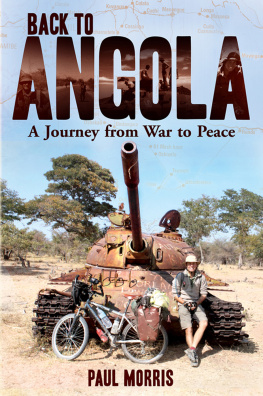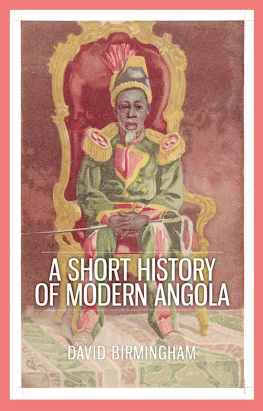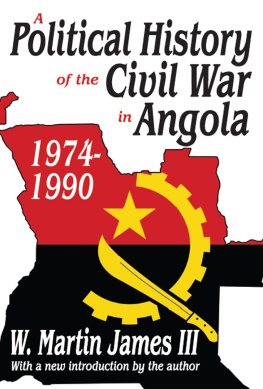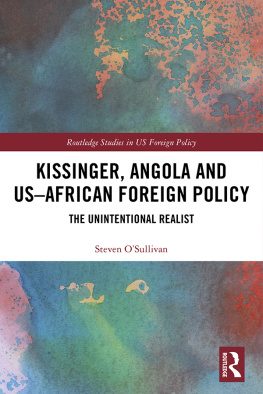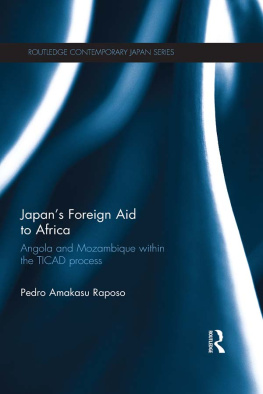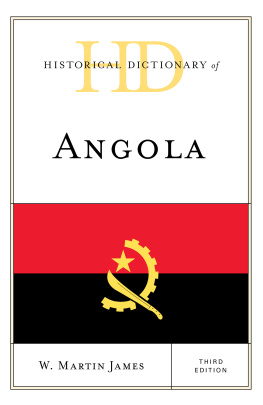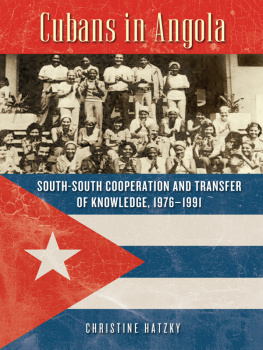Colonialism, Ethnicity and War in Angola
Making a fresh contribution to our understanding of the history of Angola, this book explores the impact of social, political, and economic change upon the largest ethnic group of the country, the Ovimbundu.
Based on extensive fieldwork conducted in Angola, including oral testimonies and life stories, and participant-observation, this book shifts the viewpoint from the colonial enterprise, international politics and ideological alignments to focus on African experiences and responses. The author analyses the transformations introduced by Christianity and colonialisation and how they contributed to politicised modern notions of ethnic identity, creating communal imaginaries that began manifesting during Angolans anti-colonial war. He then explains how the weaving of this ethno-political landscape assisted UNITAs mobilisation of significant parts of the Ovimbundu during the civil-war, essentially deepening popular belief in the axiom Ovimbundu-UNITA, and how the latter created a national imaginary that echoed social anxieties and moral discourses. The book then explores the links between ethnicity, politics, and war on the quality of post-war citizenship in Angola, particularly on peoples integration in the citizenry or marginalisation from it.
Articulating a reading of ethnicity that connects high politics and elite-based explanations with how ordinary people feel and discuss ethnicity, politics, and citizenship, this book will be of interest to scholars of African history and politics, as well as ethnicity and nationalism.
Vasco Martins is a researcher at the Centre for Social Studies, Univ Coimbra, Portugal.
Routledge Studies in the Modern History of Africa
This series includes in-depth research on aspects of economic, political, cultural and social history of individual countries as well as broad-reaching analyses of regional issues.
Themes include social and economic change, colonial experiences, independence movements, post-independence governments, globalisation in Africa, nationalism, gender histories, conflict, the Atlantic Slave trade, the environment, health and medicine, ethnicity, urbanisation, and neo-colonialism and aid.
Forthcoming titles:
Africans and the Holocaust
Perceptions and Responses of Colonized and Sovereign Peoples
Edward Kissi
Photography and History in Colonial Southern Africa
Shades of Empire
Lorena Rizzo
Womens Lived Landscapes of War and Liberation in Mozambique
Bodily Memory and the Gendered Aesthetics of Belonging
Jonna Katto
Rethinking White Societies in Southern Africa
1930s-1990s
Duncan Money and Danelle Van Zyl-Hermann
Colonialism, Ethnicity and War in Angola
Vasco Martins
For more information about this series, please visit: https://www.routledge.com
First published 2021
by Routledge
2 Park Square, Milton Park, Abingdon, Oxon, OX14 4RN
and by Routledge
52 Vanderbilt Avenue, New York, NY 10017
Routledge is an imprint of the Taylor & Francis Group, an informa business
2021 Vasco Martins
The right of Vasco Martins to be identified as author of this work has been asserted by him in accordance with sections 77 and 78 of the Copyright, Designs and Patents Act 1988.
All rights reserved. No part of this book may be reprinted or reproduced or utilised in any form or by any electronic, mechanical, or other means, now known or hereafter invented, including photocopying and recording, or in any information storage or retrieval system, without permission in writing from the publishers.
Trademark notice: Product or corporate names may be trademarks or registered trademarks, and are used only for identification and explanation without intent to infringe.
British Library Cataloguing-in-Publication Data
A catalogue record for this book is available from the British Library
Library of Congress Cataloging-in-Publication Data
A catalog record has been requested for this book
ISBN: 978-0-367-86086-8 (hbk)
ISBN: 978-1-003-02554-2 (ebk)
Typeset in Bembo
by codeMantra
To my parents, Jorge and Eduarda, for their support throughout the years.
First and foremost, I must express my deepest gratitude to all the people in Angola who were willing and unafraid to share their story and the story of their country with me: to dig the past, to explore traumatic events, and remember the loss of family and friends. Above all, I thank them for giving life and emotion to history. Many tears were shed in the process. I have attempted to dignify their stories in this book.
I benefitted from a scholarship provided by the Fundao para a Cincia e Tecnologia, which allowed a first incursion into Angola somewhat free of financial constraints. Im also grateful to the people at ADRA-Angola and its office in Huambo, in particular, to Belarmino Jelembi, Maria La Salette, and especially Tio Bernardino, friend, translator, storyteller, and companion of many travels and witness to several successes and failures.
During my stay in Angola I was lucky to have met Inge van Cauwenberg. Having lived in Angola for nearly two decades, Inge provided me with many invaluable contacts, helping pull my fieldwork from the rut of missed calls, cancelled meetings, and countless political queries. Inge extended her trust to people otherwise uncomfortable to talk about my research topic, fearful of my identity and unwilling to revisit the recent past. I also thank Development Workshop-Huambo, which allowed me to use one of their offices to conduct interviews, organise notes, and think about the days ahead. My thanks also go to a friend of my family for arranging accommodation and picking me at the airport (a vital part of travelling to Angola). Much of my time outside work was spent at his house with our bellies full. Im also grateful to Martin Hrcules who provided accommodation and companionship in Angola when I had very little research funding available to spend in one of the most expensive and unequal countries in the world.
In Portugal, I had a lively community of friends and colleagues with whom to share my doubts and concerns, unburdening the solitude of work. This book is also dedicated to them. My gratitude to Fernando Florncio, for the friendship, availability, doctoral advice, and the countless hours speaking and sharing stories about Angola. I had the privilege of relying on Ana Lcia S, Edalina Sanches, and Pedro Seabra for friendship, intellectual companionship, motivation, and support, always ready to lift my spirits when things seemed bleak. I particularly thank Pedro Seabra for helping review parts of the book. Diogo Noivo and Andr Monteiro were present and willing to hear my first sketches when I began studying Angola. More recently, Miguel Cardina, Ins Nascimento Rodrigues, and everyone at CROME project and the Centre for Social Studies have been important in the path that led to this book. I have benefitted immensely from their epistemologies on colonialism and liberation. Angolan historian Maria Conceio Neto has taught me many things about Angola and the central highlands. Our conversations over the years have been a source of inspiration to write this book. I thank her for listening to my doubts and concerns and for helping shape my thinking about how to write history for Angolans. Ricardo Soares de Oliveira knows my work well and gave me the final push to publish the manuscript. Much of this is the result of a cup of coffee in Luanda.


